Mikhail Gorbachev, in his words and the words of others
By John Mecklin | August 30, 2022
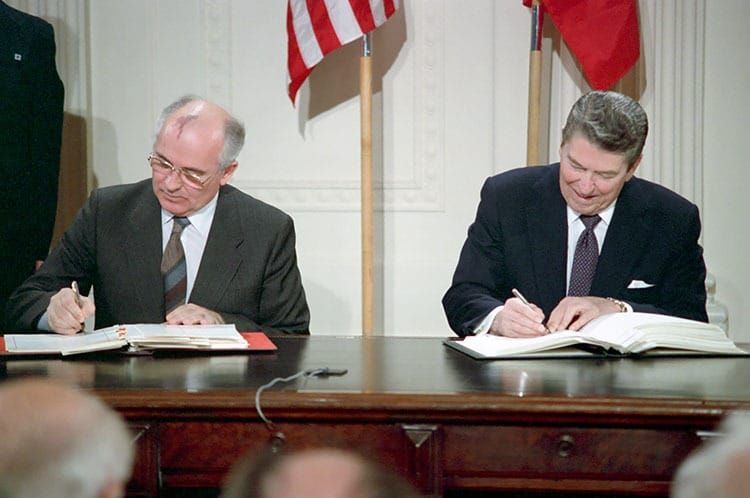 President Ronald Reagan and Soviet General Secretary Gorbachev signing the INF Treaty in the East Room of the White House on December 8, 1987. Credit: Ronald Reagan Presidential Library
President Ronald Reagan and Soviet General Secretary Gorbachev signing the INF Treaty in the East Room of the White House on December 8, 1987. Credit: Ronald Reagan Presidential Library
With the passing of Mikhail Gorbachev, an era characterized by change and reduced international tensions—from the reform and openness promised by perestroika and glasnost to the dissolution of the Soviet Union and the end of the Cold War—seems to have reached an end. Gorbachev died this week at 91 “after a severe and prolonged illness,” the TASS news agency reported, quoting a release from the Central Clinical Hospital in Moscow. His death drew a wide array of reactions that focused both on his historical role in transforming the Soviet Union and its relations with the West and on Russia’s attempts, in recent years, to reverse that transformation by reclaiming parts of its former constituent republics, sometimes by force, as in its current invasion of Ukraine.
The last general secretary of the Soviet Communist Party and the first (and only) president of the Soviet Union, Gorbachev was admired in the West for initiatives that led to significant reductions in US and Soviet nuclear arsenals and to what seemed a greatly reduced likelihood of nuclear war. At the same time, as the Moscow Times notes, “he was a divisive figure at home, perceived to have instituted policies that precipitated the dissolution of the Soviet Union and the economic chaos and loss of superpower status that followed.”
What follow are a few articles from the Bulletin’s archives—by Gorbachev and others—that only begin to hint at the enormity of the change he and US counterparts brought to international relations as the Cold War ended and the world seemed, suddenly, far safer than it had been. At least for a while.
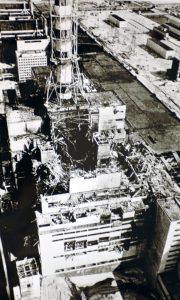
Chernobyl 25 years later: Many lessons learned
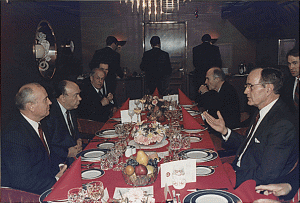
Disarmament lessons from the Chemical Weapons Convention
By Mikhail Gorbachev, Rogelio Pfirter | June 16, 2009
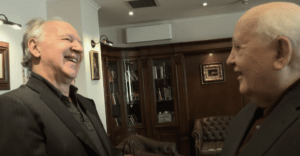
The 10-minute interview: Werner Herzog on “Meeting Gorbachev”
By John Mecklin | May 3, 2019
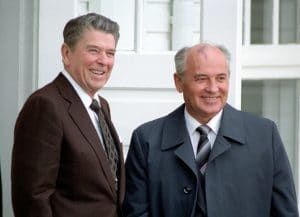
The legacy of Reykjavik and the future of nuclear disarmament
By Paul F. Walker, Jonathan R. Hunt | November 1, 2011
Together, we make the world safer.
The Bulletin elevates expert voices above the noise. But as an independent nonprofit organization, our operations depend on the support of readers like you. Help us continue to deliver quality journalism that holds leaders accountable. Your support of our work at any level is important. In return, we promise our coverage will be understandable, influential, vigilant, solution-oriented, and fair-minded. Together we can make a difference.
Keywords: Cold War history, Mikhail Gorbachev, Soviet Union, glasnost, obituary, perestroika
Topics: Nuclear Risk, Nuclear Weapons














